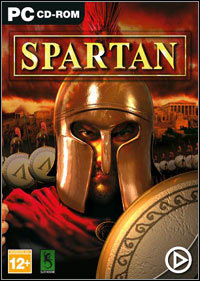
In 1652, for the first time in 1,500 years, an invader attacked and conquered Egypt.

Unfortunately, in history, all good things must come to an end. It is no wonder that Egyp- tians believed themselves to be blessed by their gods. until World War II, can boast a greater such period. This period of security from outside attack is almost unprecedented in human history possibly only the Japa- nese, who were safe from the time of the first emperor Jimmu in 660 B. to the end of the Middle Kingdom, around 1652, Egypt not only enjoyed (mostly) internal peace and stability but also suffered no invasions. From the emergence of Egyptian civilization in 3100 B. The Mediterranean to the north, the desert to east and west, and the jungles and cataracts to the south provided Egypt with natural protection from the outside world.

The early periods of Egyptian history (Dynastic, Old and Middle Kingdoms) were characterized by peace, prosperity, and pyramids. Attached to the sides were one or two quivers, each containing thirty or forty arrows, a bow case, and sometimes a quiver for javelins. It had two wheels, each with four (later six) spokes, and an axle placed at the very rear of the body for stability on fast turns. The frame was made of wood covered with leather. Complete chariots have been found in Egyptian tombs. Indeed, Chariots is a rich, complex character study of what drives two men to run that reveals the fissures in British society as much as it celebrates the heroism that overcomes them.The war chariot was made possible by two inventions, the spoked wheel and the bit. Juxtaposing the lives of driven Jewish law student Harold Abrahams (Ben Cross), all Gilbert and Sullivan and run-ins with the college hierarchy, with Scottish missionary Eric Liddell (the late Ian Charleson), all sermons in the rain and run-ins with his devout Christian sister (Cheryl Campbell), it’s a film about class, anti-semitism, the aftermath of World War I, bureaucratic red tape and the power of faith. Yet like all the best sports movies, Chariots is about so much more than a race. The power of slow-motion running/Vangelis’ score might have been rubbed away by parody but Chariots gets lots of variety in its sporting set-pieces: the mournful, impressionistic Abrahams versus Liddell showdown is as far away from power sports montages as you can get. It also has edges, fuelled by a fiery anti-authoritarian stance that takes pot-shots at Cambridge porters, the Prince Of Wales and everyone inbetween. It’s funnier, more playful (stand up Ian Holm as Abrahams’ trainer and a young Nigel Havers hurdling champagne glasses) than its stuffy rep suggests.

Whether returning to it or discovering it fresh, Chariots might surprise you.
#CHARIOTS OF WAR TRAINER MOVIE#
Hudson’s filmmaking elegance, producer David Puttnam’s sincere chutzpah and writer Colin Welland’s fierce intelligence coalesce to form not only the best film about athletics/the Olympics (frankly that’s not hard), but also a rare movie that keeps optimism, intelligence and emotion in perfect balance. While Chariots certainly trumpets old-school values, overflows with period finery and offers patriotic uplift in its finale, this is not the whole story. Over the 31 years since its release, it has been parlayed into the epitome of cosy, flag-waving heritage cinema, a proto King’s Speech/Downton Abbey squarely rooted in the middle of the middle-brow.

Chariots Of Fire, Hugh Hudson’s winner of four Oscars, returns with an unfair rep.


 0 kommentar(er)
0 kommentar(er)
